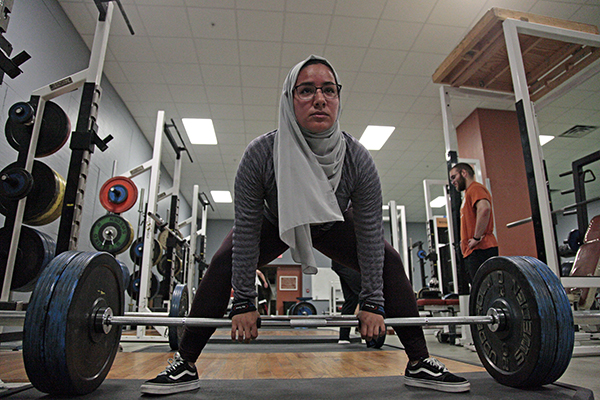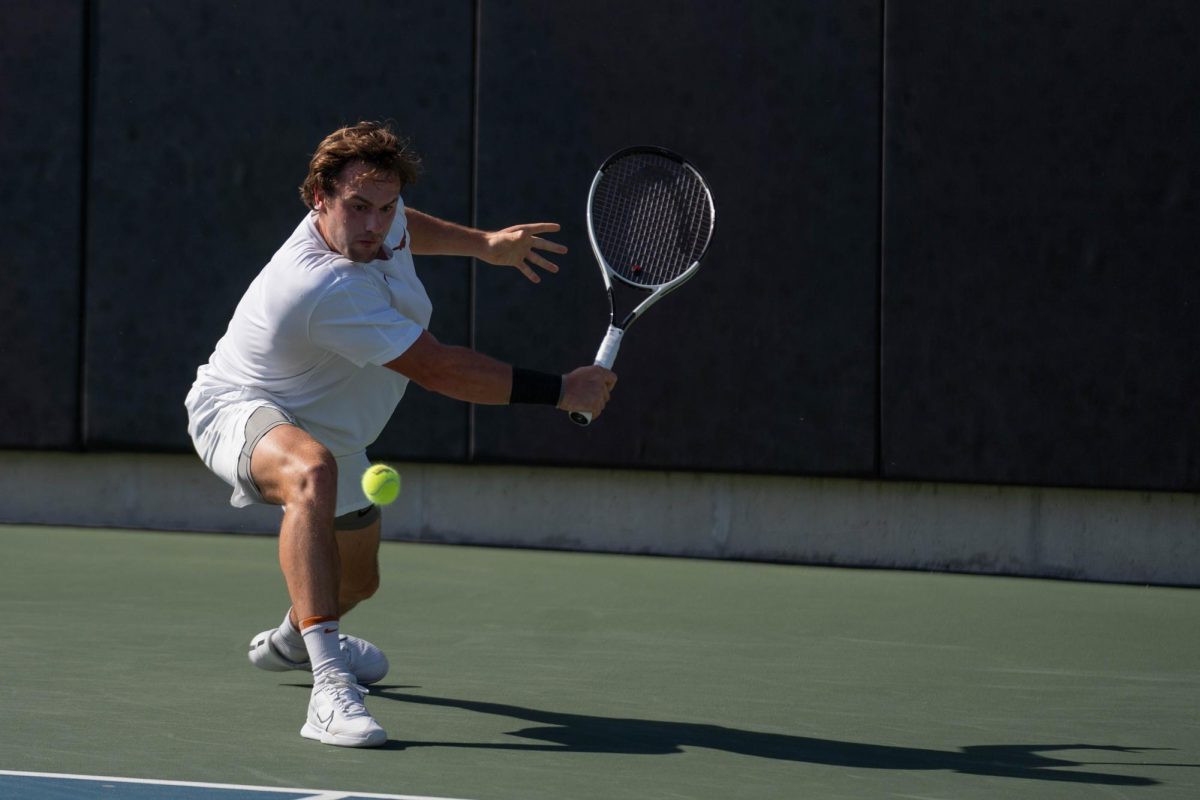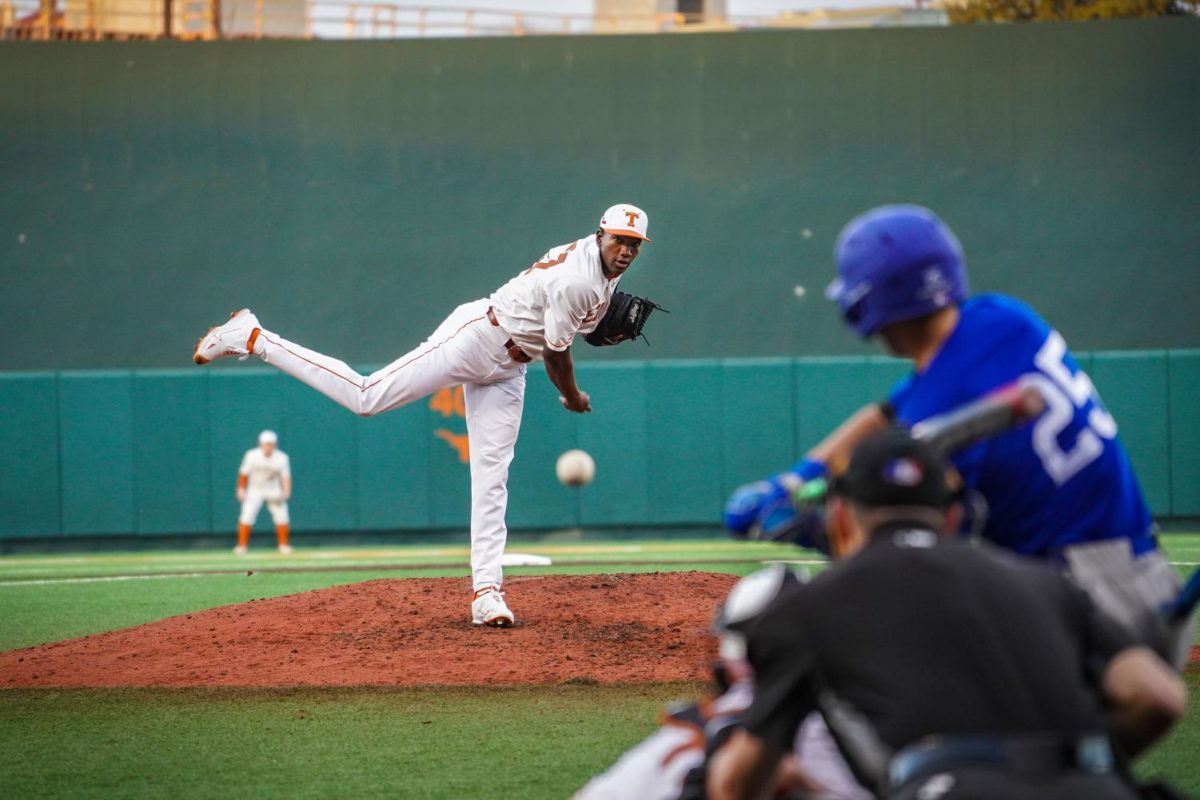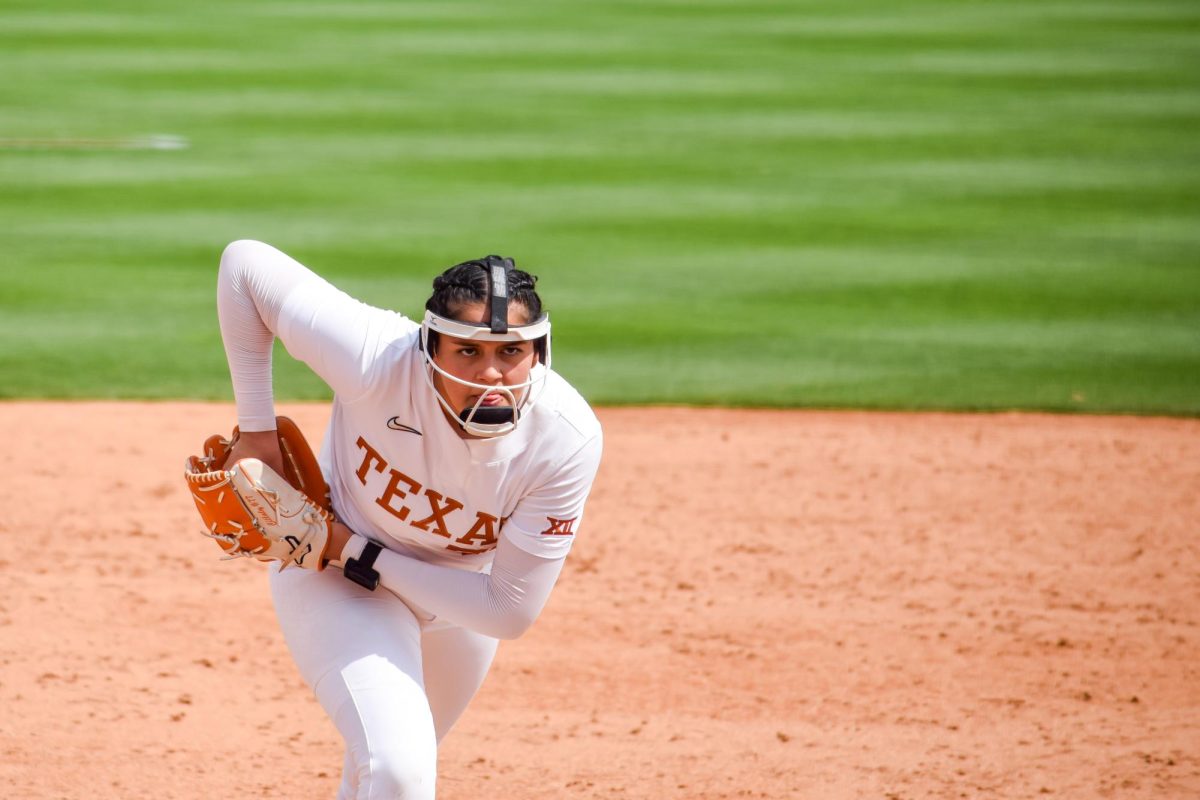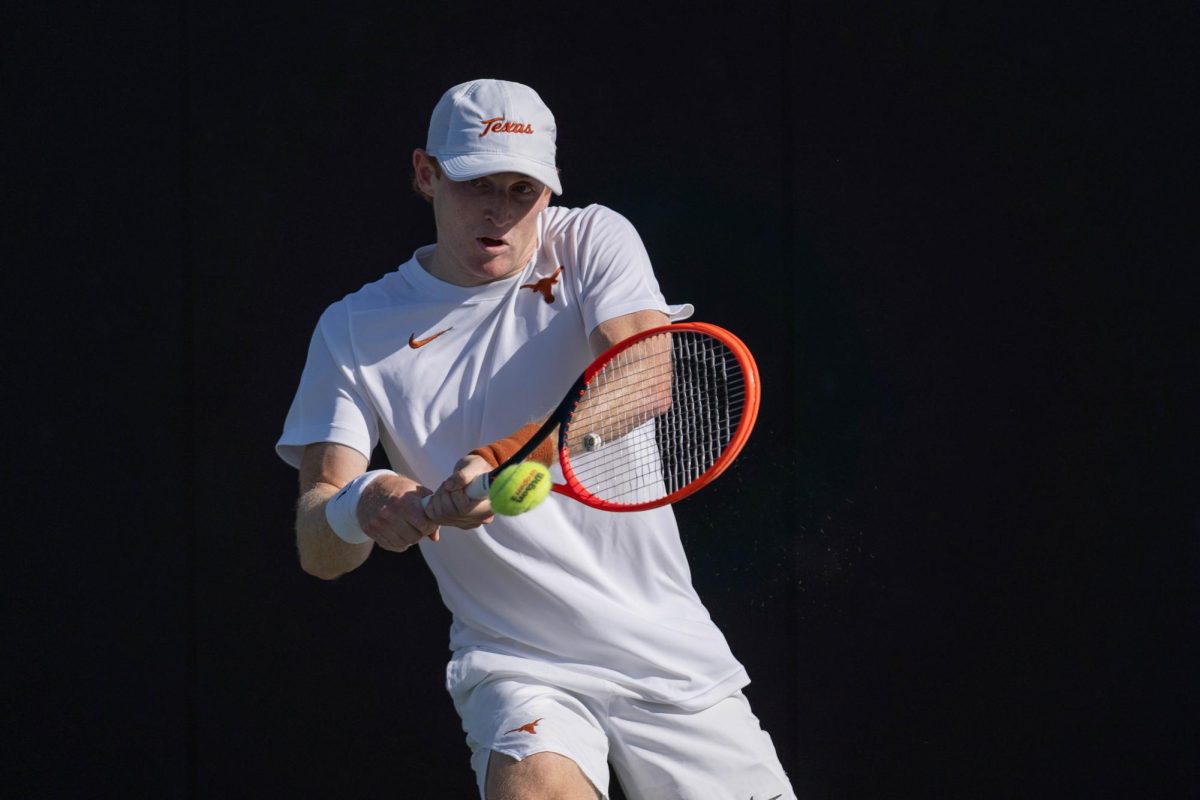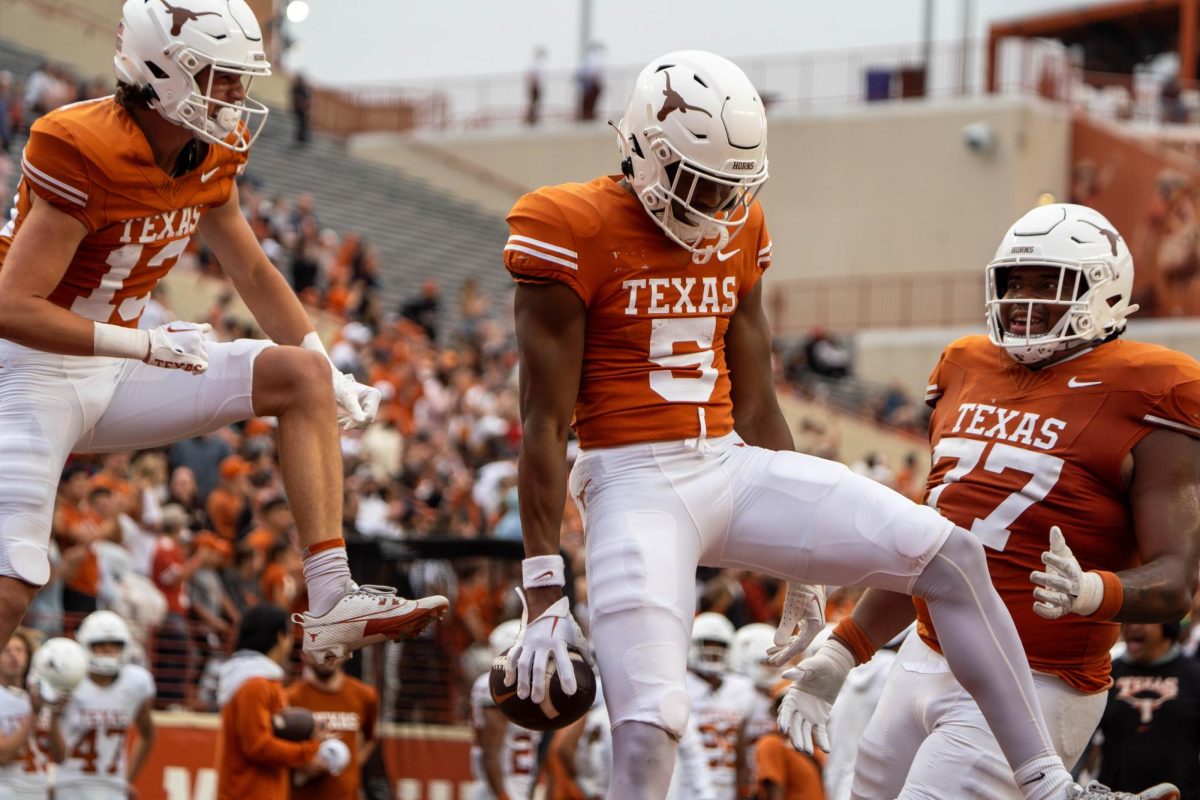When Marwa Najem tried out for Longhorn Powerlifting the fall of her junior year, she tore her hamstring muscle but didn’t stop lifting until the tryouts were over.
“I remember crying through the pain,” said Najem, a health and society senior. “I was like, ‘I don’t give a damn. I’m going to make it onto this team.’”
After going directly to CVS and buying two bags of ice, Najem sat in a numbingly cold bath and cried over the phone to her mom. The next day, she got an email confirming her spot on the team.
“That was worth the muscle tear,” Najem said.
Originally from Iraq, Najem had never been on a team before she joined UT’s powerlifting club.
“I just wanted to be a part of something,” Najem said. “And I think powerlifting was that something.”
When she was 8, Najem and her family evacuated their home in Iraq when it was bombed.
“I remember waking up to a bunch of smoke, and that’s the last thing I remember about my country,” Najem said. “I never really had a childhood. For me, it was like, ‘We’re going to move to your uncle’s house for a few days because there’s a group of terrorists that are going to come by.’”
The family spent a few years in Syria before moving to Dallas, Texas, where Najem entered the eighth grade. As an overweight middle schooler stuck between two cultures, Najem said she felt “stripped of everything” she had. Some days, she considered removing her hijab just to fit in, but never did.
Najem’s transition to American schooling was difficult, too. As a junior in high school who was just beginning to speak English, Najem never thought she would graduate, let alone go to college, she said. Whenever she felt down, she turned to her mom, who assured her she would be a doctor one day.
Najem began working out in high school as a way to lose weight. At first, she was too shy to go to a commercial gym. “My parents bought me big speakers, and I would just sit in the garage and belly dance for hours,” Najem said. Eventually, she asked her parents for a membership at a women’s-only gym and began lifting.
While working at her desk job in the financial aid office at UT, Najem wondered if the University had a lifting team.
“I didn’t know it existed,” Najem said. “I’ve never known about sports. I didn’t know there were sports clubs.”
After finding the Longhorn Powerlifting page online and googling the definition of “try out,” she decided she wanted to join the team.
Longhorn Powerlifting, founded in 1983, currently has about 70 members. The student-led club holds practices at a facility inside the football stadium several times a week to prepare its athletes for collegiate-level competitions.
Najem’s coach, Michael Young Pyon, said when she joined the team, she was hesitant.
“At first, she used to have a lot of questions about what we would do,” Pyon said. “She was a little discouraged. She was like, ‘Man, I’m so weak.’”
But her confidence grew quickly, Pyon said. By April, she was on her way to collegiate nationals. That competition was a turning point for Najem. She worked her way up to deadlifting 275 pounds, “a huge number,” Pyon said. Seven months earlier, she was deadlifting just the bar.
In 2017, the year Najem began lifting, USA Powerlifting added a rule allowing Muslim lifters to compete in a full body suit and hijab. Despite the change in the rulebook, Najem had to negotiate with officials to be able to wear a full-length unitard underneath her team singlet at nationals.
Although she often has to have her clothing preapproved and “double- or triple-checked” at competitions, Najem said she understands the strict rules and that people within the sport have been extremely accepting of her.
“I haven’t gone through any discrimination,” Najem said. “In fact, I honestly feel like powerlifting is the only place where I’m not discriminated.”
Being part of a supportive community has been emotional for Najem, and it shows when she competes.
“I just remember on the stage, she started crying,” Pyon said. “And I was like, ‘I know why.’ She was proud of herself. She had a big sense of accomplishment.”
Crying is a normal reaction for her on competition day.
“I can’t control it,” Najem said.
Najem’s family had a chance to see her lift when she traveled to Dallas for a competition in January.
“I swear the whole time she had a smile on her face,” Najem’s younger sister, Banin, said. “Every time she lifted and saw her score, that smile got so much bigger. And that’s what made us really happy.”
The presence of her family meant everything to Najem.
“My dad never leaves work, but he left work and he came to my competition,” Najem said. “That was the best day of my life. He was so excited.”
Since then, Najem said she hears her dad’s voice every time she lifts. She has always relied on support from her family. Without it, she said she wouldn’t have tried out for the club in the first place.
“When I joined powerlifting, I felt like new things were coming,” Najem said. “Everything felt different. I felt like if I could make it to the powerlifting team, I can make it anywhere else.”



